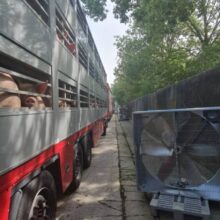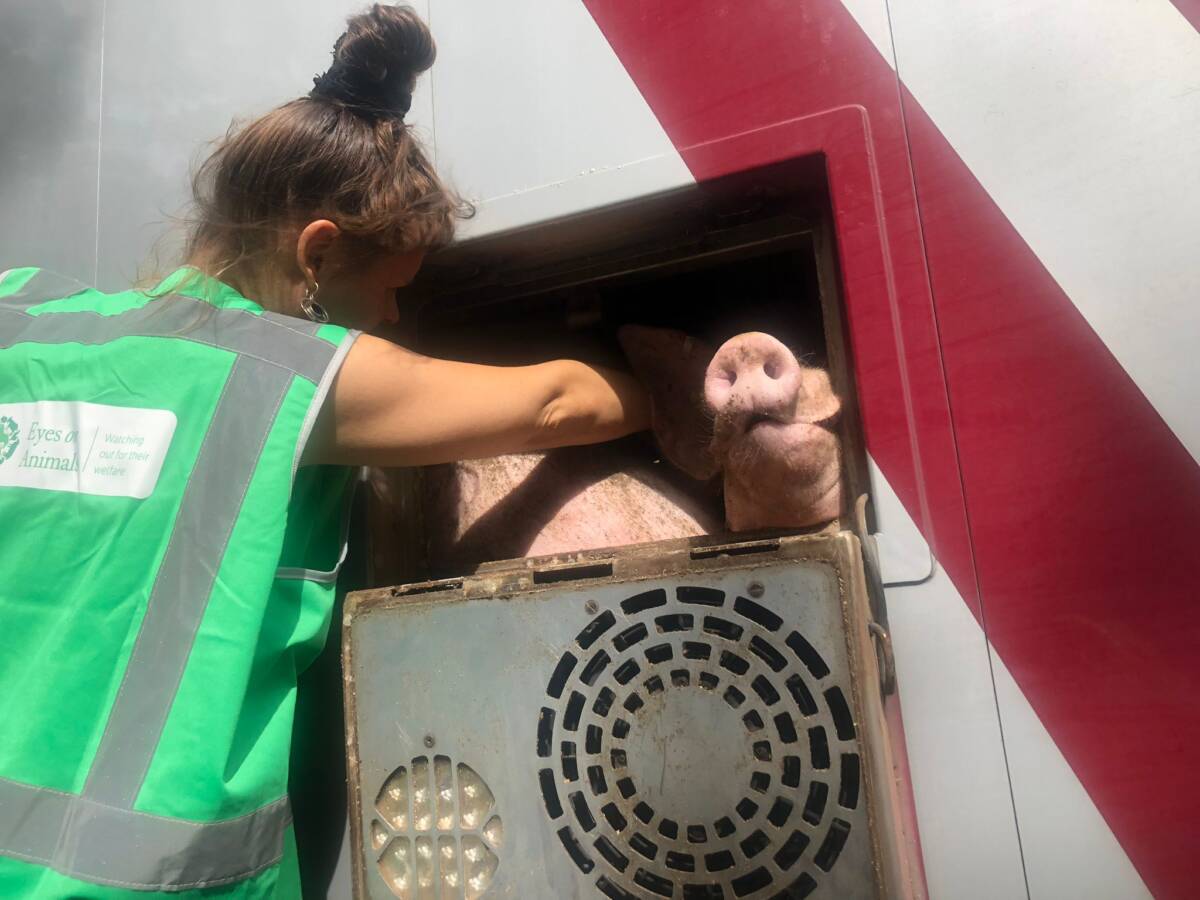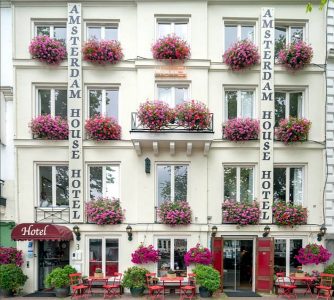Due to the warm weather (26°C), Eyes on Animals conducted an unannounced visit to the VION slaughterhouse in Groenlo, where finishing pigs and sows are slaughtered. We were given permission to immediately observe the stationary trucks waiting on their premises and the unloading process. Unfortunately, the waiting time was really long: the pigs on board had to wait 2-2.5 hours before being unloaded. This was primarily due to a malfunction in the slaughter line yesterday and an ongoing construction project.

There were four trucks waiting in total, each carrying finishing pigs. The trucks were parked in the shade along a wall, next to a row of trees. The mobile fans, that were placed next to the trucks, were not in operation because the “Dutch heat protocol rules” were not officially applicable today (temperature in the shade just under 27°C). However, it’s important to note that the temperature inside the trucks is often a few degrees higher than outside, and the humidity is significantly higher as well. Therefore, fans are really not an unnecessary luxury! Also today we saw that pigs really struggled with the heat. Moreover, sows are even more sensitive to heat stress than finishing pigs due to their heavy weight and high productivity (milk production). They can already experience heat stress at temperatures around 20°C.
VION informed us the next day that they will adjust their policies based on our recommendations; the fans will be turned on earlier in the future. They also expressed their intention to review the waiting times, a move we appreciate. We further advised VION to install elevated fans for pigs on the second and third loading floors. As the Dutch heat protocol was not in effect, the trucks were loaded as usual. At the standard loading density (235kg/m2), pigs are forced to lie on and/or against each other, hindering their ability to cool down. However, one driver from Vlastrans had chosen a lower loading density (10 pigs per compartment instead of 11-12). This allowed the pigs more space to cool down (and rest comfortably), and in his truck, we observed significantly less heat stress compared to the other trucks. We complimented the driver for this decision. During our visit, one of the other trucks was unloaded earlier than planned because the pigs were highly agitated (fighting and panting). We view it positively that VION responded to this situation.

The unloading process went smoothly: the groups were large (loading one floor at a time instead of one compartment at a time) but the pigs were given time to walk calmly. As an alternative to using a paddle (which can be used to hit the pigs), a plastic roll was used to guide the pigs. Additionally, a small rattle was used; in our opinion, this could also be eliminated to ensure even more tranquility. We want to thank VION for their cooperation.

